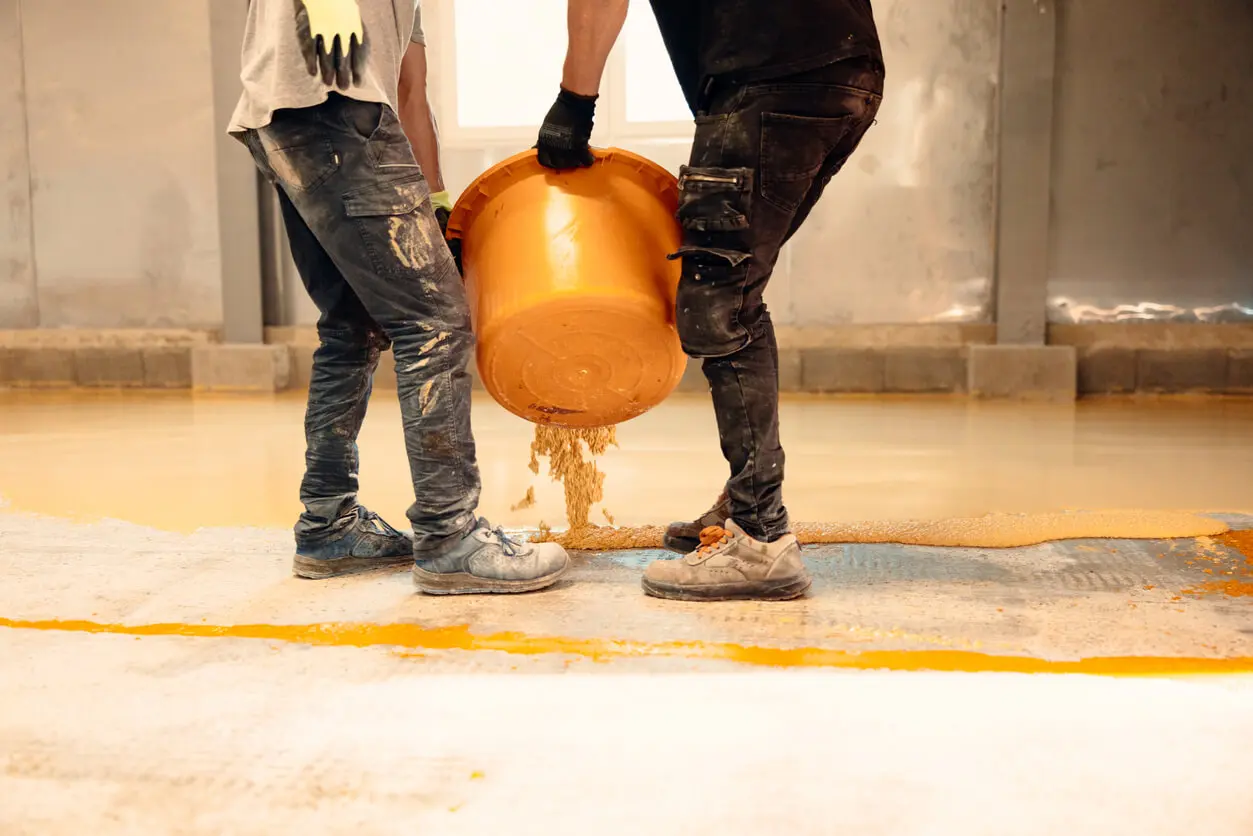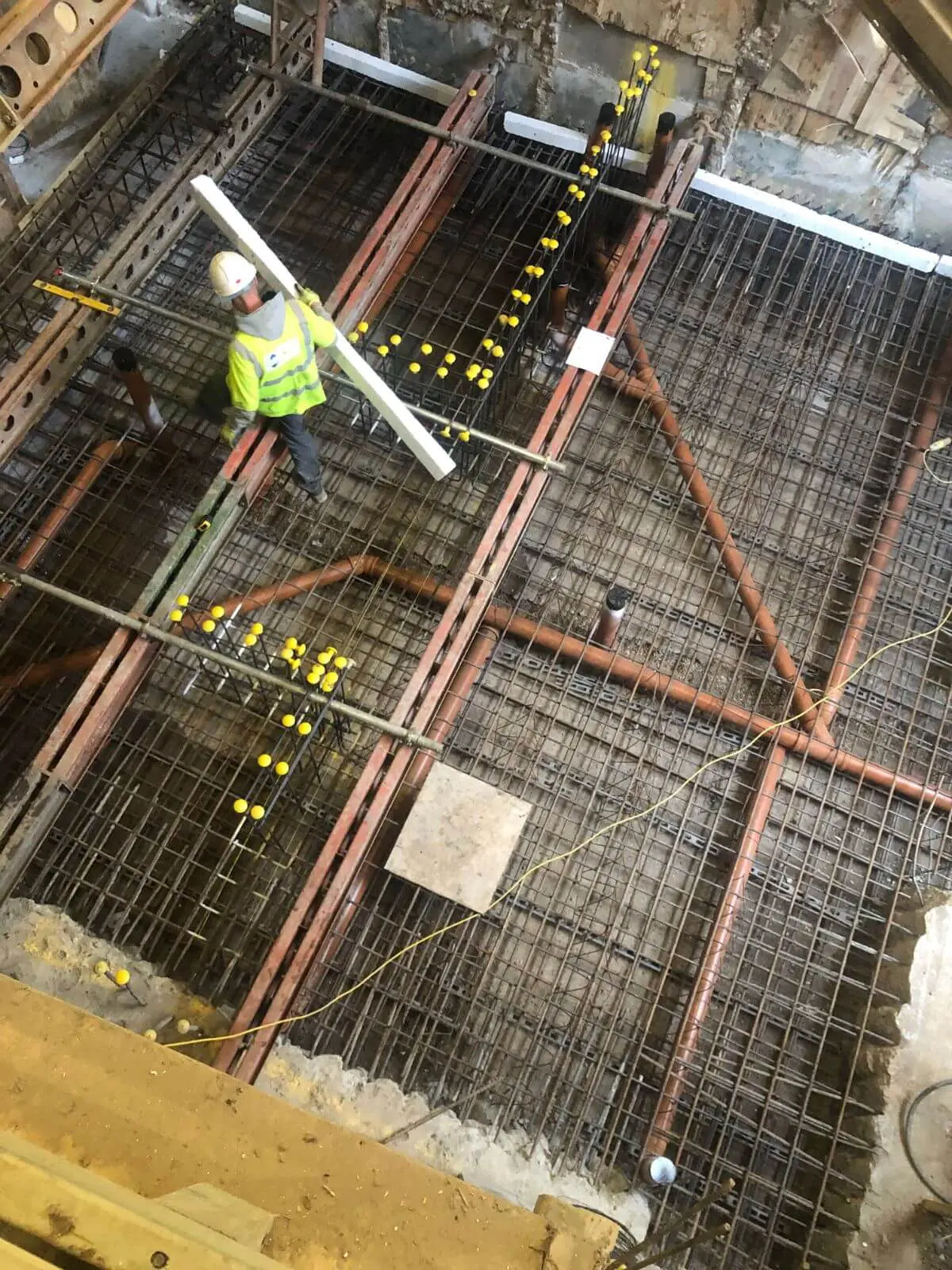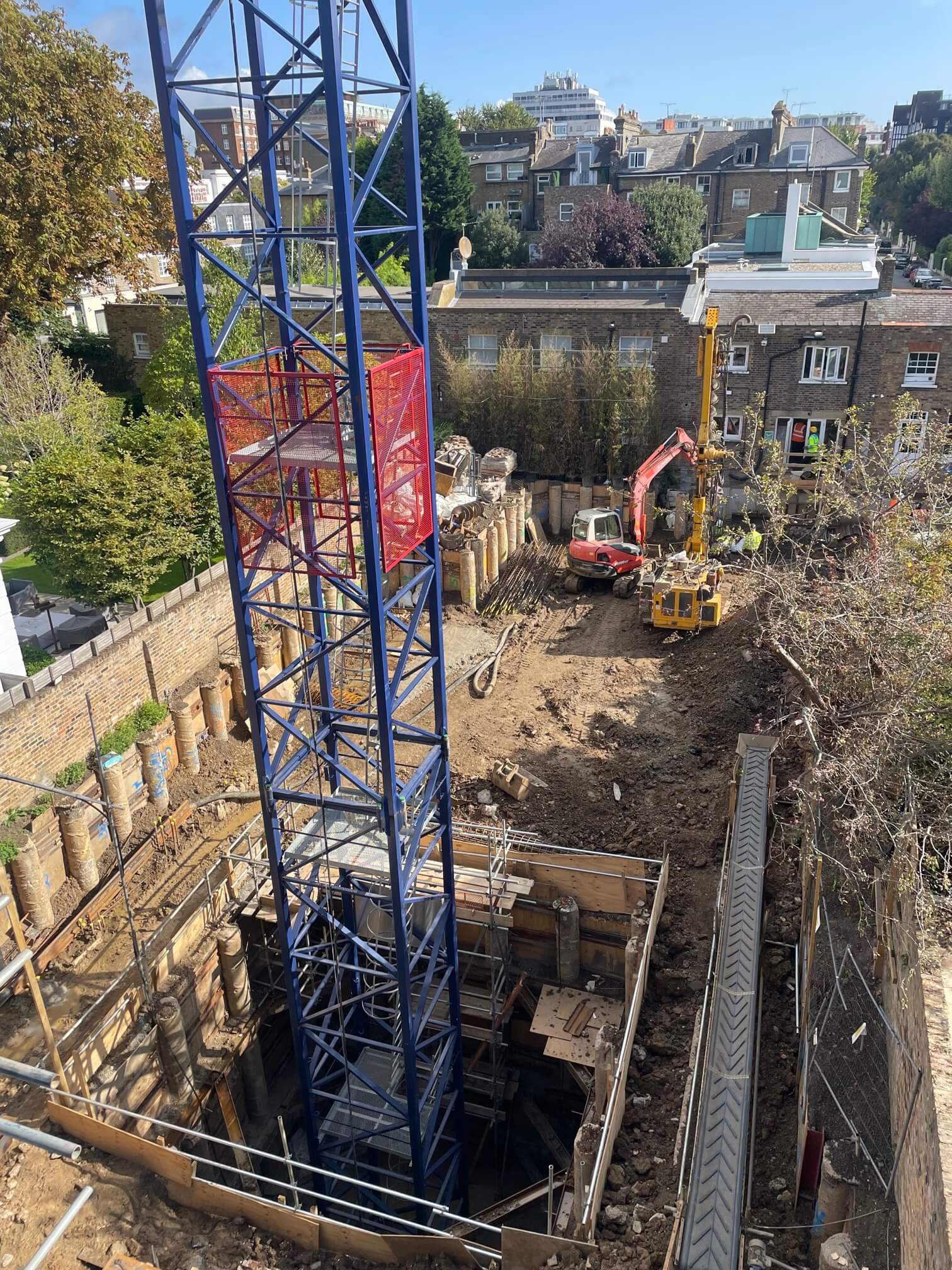
Waterproofing Your Basement: Essential Steps to Take Before Starting the Build
Building a basement is a significant investment and ensuring that it remains dry and protected...
Building a strong and stable basement foundation is essential for the overall stability of any construction project. Whether you are constructing a residential or commercial property, the foundation is what ensures the durability and safety of the entire building. This makes it one of the most important parts of a basement foundation.
A reinforced concrete slab is a key component in basement construction, providing the solid foundation necessary to support the structure above. Reinforced concrete slabs are designed to distribute loads evenly across the foundation, offering stability and strength in even the most challenging soil conditions.
The primary function of a reinforced concrete slab is to evenly distribute the load of the building to the foundation. This is particularly important for basement construction, where the weight of the structure above must be supported by the slab. The reinforcement, usually made from steel bars or mesh, helps the concrete resist bending and cracking under heavy loads.
Reinforced concrete slabs provide a high level of resistance to environmental factors such as moisture and temperature changes. This is crucial in basement construction, as basements are often exposed to groundwater and fluctuating temperatures. The steel reinforcement helps to prevent cracking and ensures that the slab remains intact, even in adverse conditions.
Reinforced concrete is well-known for its durability and longevity. By incorporating steel reinforcement into the concrete slab, the structure gains additional strength and resilience, ensuring that the basement foundation remains solid for decades to come. This makes reinforced concrete slabs an ideal choice for both residential and commercial projects.
Reinforced concrete slabs do not work in isolation, they are an integral part of a larger system of structural steel frameworks and other structural elements that provide stability to the building. The integration of these components is what makes basement construction so robust and capable of withstanding various forces.
Structural steel frameworks are often used in conjunction with reinforced concrete slabs to create a stable and durable basement structure. The steel framework provides tensile strength, while the reinforced concrete slab offers compressive strength. By combining these materials, the overall structure benefits from enhanced load-bearing capacity and resilience.
Reinforced concrete slabs are often connected to structural steel beams and columns, which provide vertical and horizontal support to the building. This integration helps to distribute the loads from the upper levels of the building to the foundation, ensuring that the basement remains stable and secure. The combination of reinforced concrete and structural steel creates a balanced system that can handle both static and dynamic loads.
In basement construction, shear walls and retaining walls are used to resist lateral forces such as soil pressure and wind loads. Reinforced concrete slabs are typically connected to these walls, providing additional stability and preventing lateral movement. This is particularly important in areas with challenging soil conditions, where the risk of movement or shifting is higher.
Reinforced concrete slabs are widely used in large commercial projects due to their strength, durability, and versatility. You’ll usually see them used in:
In multi-level car parks, reinforced concrete slabs are used to create the floors of the parking structure. These slabs need to be strong enough to support the weight of multiple vehicles, as well as the forces created by cars driving on them. By using reinforced concrete, the slabs are able to handle these loads without cracking or failing.
In commercial office buildings with basements, reinforced concrete slabs are used to create the foundation and floors of the basement levels. These slabs are typically integrated with structural steel frameworks to provide a stable and durable foundation that can support the weight of the building above. The use of reinforced concrete ensures that the basement can handle heavy loads, including office equipment, storage, and even machinery.
In large retail and mixed-use developments, basements are often used for storage, mechanical rooms, or parking. Reinforced concrete slabs provide the necessary strength and stability to support the building above, while also providing a durable surface for heavy foot traffic and equipment. The combination of reinforced concrete and structural steel frameworks ensures that the basement remains stable and functional, even under heavy use.
A reinforced concrete slab is an essential component of any successful basement construction project. By providing load distribution, resistance to environmental factors, and long-term durability, reinforced concrete slabs create a stable and secure basement foundation. When integrated with structural steel frameworks and other structural elements, these slabs contribute to the overall strength and resilience of the building, ensuring that it can withstand both static and dynamic forces.
Whether you are constructing a residential property or a large commercial building, investing in a reinforced concrete slab for your basement is a critical step in ensuring the safety and longevity of the entire structure. At BH Basements, we specialise in designing and constructing reinforced concrete slabs that meet the specific needs of your project, providing a solid foundation for future success.
Contact us today to learn more about how reinforced concrete slabs and structural steel frameworks can strengthen your basement and ensure a successful build.
For further information about BH Basements, please do not hesitate to get in touch. We are always happy to help.
For more captivating insights and expert advice, delve into BH Basements’ diverse range of blog articles.

Building a basement is a significant investment and ensuring that it remains dry and protected...

Building a basement, especially in a city like London, comes with it's own complications.

Constructing a basement in London offers an exciting opportunity to expand your property’s functionality and...